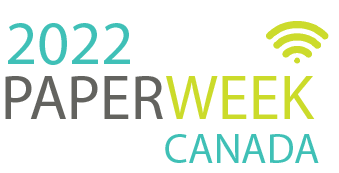
Please note you need to log in MSTeams using your PaperWeek credentials. You will NOT BE ALLOWED in the meeting sessions if you are connected with you personal or corporate MSTeams account.
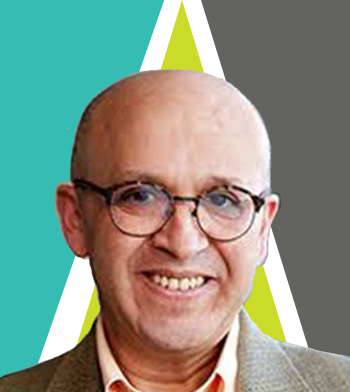
08:00 – 09:30
BIOFOR
Session Chair: Marzouk Benali, Natural Resource Canada
Roundtable – Biorefinery Transformation 101: Tutorial on Designing the Biorefinery – Session 2
The emerging bioeconomy continues to advance, and forestry companies announce new initiatives and new bioproducts with increasing frequency. However, companies are at different points in setting their strategies, while a range of promising biorefinery product-process options continue to emerge in different industrial sectors. What is the competitive biorefinery for your company, and how can technologies be systematically evaluated to assess competitive advantage taking into account technology, market and policy uncertainties? This is the second of two tutorial sessions hosted by EnVertis Consulting to overview some practical approaches for setting a sustainable biorefinery strategy.
Speakers:
“I-BIOREF: Decision Support Toll to Evaluate and Screen Biorefinery Options”, Marzouk Benali, Natural Resources Canada/CanmetENERGY
“Open Innovation: Accelerating the Deployment of your Biorefinery”, Virginie Chambost, EnVertis Consulting, Canada
“Emerging Trends: The 2022 Biorefinery is Not the 2012 Biorefinery”, Paul Stuart, EnVertis Consulting and Polytechnique Montréal, Canada
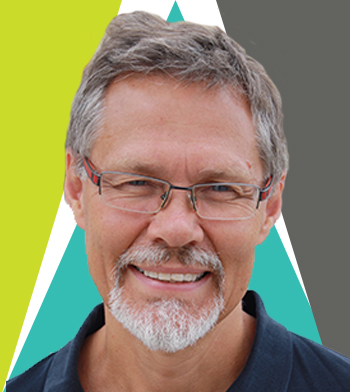
Paul Stuart, EnVertis Consulting and Polytechnique Montréal, Canada
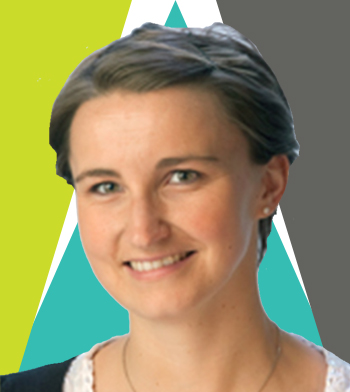
Virginie Chambost, EnVertis Consulting, Canada
10:00 – 12:00
Mill Managers' Roundtable - Talent retention and recruiting (closed session)
Session Chair: Murray Hewitt, Mill Manager, Domtar Hawesville
How do we keep our workforce engaged and energized and do we entice new grads to consider our industry?
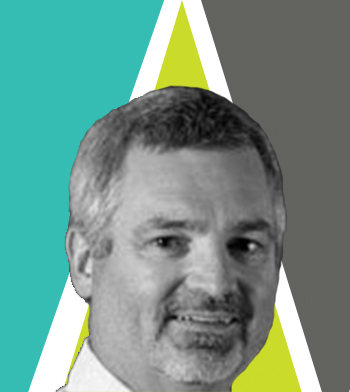
Murray Hewitt, Mill Manager, Domtar Hawesville
10:00 – 11:30
Fabrication du papier Table ronde - Bobinage (français)
Animateur: Fréderic Parent, FPInnovations
Panélistes: Luc Bédard, SPN, Bassam Dib, SPN, Jacques Perrault, Cascades CS+, Fréderic Parent, FPInnovations
- “Principes de bobinage & Surveillance et optimisation“
Bassam Dib, SPN - “Casse de la feuille à la bobineuse et autres problèmes opérationnels“ Luc Bédard, SPN & Jacques Perrault, Cascades CS+
- “Importance de l’uniformité dans le bobinage“ Fréderic Parent, FPInnovations
Chemical Recovery & Utilities
Session Chair: Aaron Ferris – Irving Pulp & Paper
- 10:00 “Reduction Rate Control“, Travis Conner, Valmet
- 10:30 “New Learning and Strategies for Meeting Future Boiler Particulate Emission Limits with Existing Electrostatic Precipitators”, Ivan Sretenovic, Southern Field Environmental Elements
- 11:00 “Chemical Recovery & Recausticizing Improvement – Increased White Liquor Production”, Alexander Moline, Domtar & Thanh Trung, Fitnir
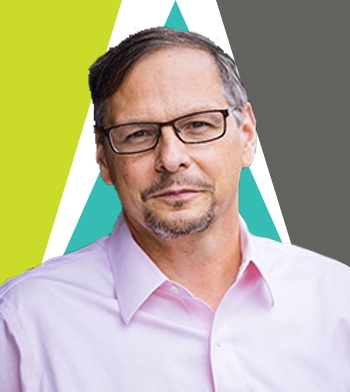
Orlando Rojas, University of British Columbia, Canada
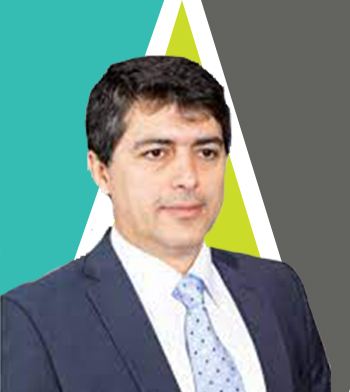
Pedram Fatehi, Lakehead University, Canada
BIOFOR
Session Chair and Co-Chair: Paul Stuart, Polytechnique Montréal, Canada, & Virginie Chambost, EnVertis Inc., Canada
Roundtable – Biorefinery Transformation 101: Emerging Technology Platforms When Designing the Biorefinery – Session 3
In this last Biorefinery 101 session, a roundtable discussion will be hosted by EnVertis Consulting where experts present innovative biorefinery product and process technologies that have potential to provide sustainably good margins over the long term, and discuss what makes them great biorefinery technology platforms.
Speakers:
Orlando Rojas, University of British Columbia, Canada
Pedram Fatehi, Lakehead University, Canada
Matti Heikkilä, MetGen, Finland
Gurminder Minhas, Performance Biofilaments, Canada
Rob Voncken, Yilkins B.V., The Netherlands
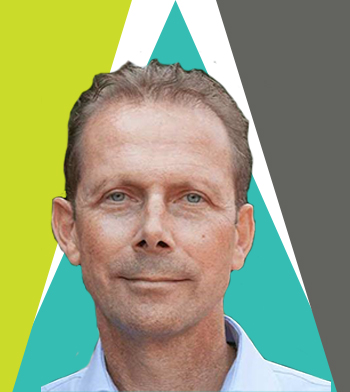
Rob Voncken, Yilkins B.V., The Netherlands
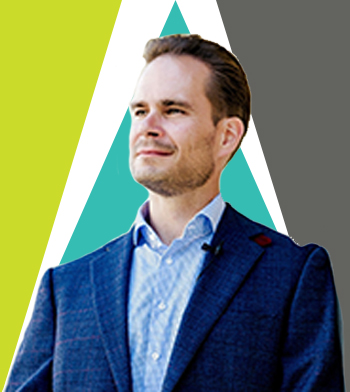
Matti Heikkilä, MetGen, Finland
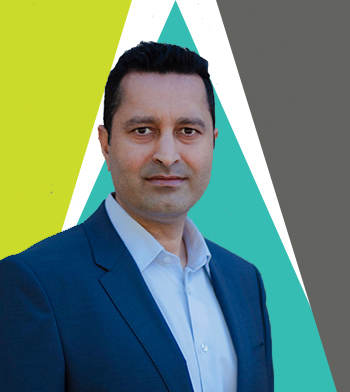
Gurminder Minhas, Performance Biofilaments, Canada
11:30 – 12:30
Networking and Lunch Break
12:30 – 14:00
Energy
COGEN workshop
Industrial processes use large amounts of energy in the form of heat and electricity accounting for a significant portion of industrial operating costs. Over the past few decades, industrial cogeneration has grown significantly to manage heat and electricity more efficiently in several industries, including pulp and paper, chemicals, steel, and oil and gas. Cogeneration is the simultaneous production of electricity and thermal energy from a single energy source. It offers a cost-effective way to increase profitability and reduce overall greenhouse gas emissions and effluents. However, finding the best design and operating options for complex systems is challenging.
COGEN is a state-of-the-art flowsheeting-type modeling software to simulate and optimize industrial cogeneration systems. COGEN combines powerful diagnostic and optimization capabilities to quickly identify and provide solutions to improve the performance and profitability of utility systems by taking into account a set of operational and design constraints.
Workshop outline:
Introduction to the principles of cogeneration (CHP)
Optimization of utility systems in P&P plants
Presentation of COGEN software and optimization of a typical CHP system using COGEN (case study)
Speakers: Bahador Bakhtiari, Serge Bedard, and Abdelaziz Hammache, Natural Resources Canada
Fiabilité (français)
Animateur: Charles-David Gagnon, Produits forestiers Résolu
- 12:30 “Initiative industrie 4.0 de suivi d’actifs chez Kruger Crabtree”, Louis Beauvais, Contrôles Laurentide & Jean-Francois Noel, Kruger Products
- 13:00 “Accélérez le succès de votre programme de maintenance et de fiabilité, et numérisez vos processus de suivi de vos actifs”, Louis Beauvais, Contrôles Laurentide & David Maltais, Nordic Kraft
- 13:30 “Comment réduire les coûts de maintenance et les temps d’arrêt”, Sébastien Charrel, Consult-Elect & Sylvain Roch, Contrôles Laurentide
Management
Using Multivariate Experiments for Faster Learning – Martin Carignan & Vincent Béchand, Difference GCS
Trials are often performed to test hypothesis. For example, what happens to the strength of the paper if we change from chemical A to B? What if we add the chemical in location X instead of Y? What if we change the pulp mix or the refining energy? Would that provide a larger impact on strength than changing the chemical?
Everybody will recognize that we live in a multivariate world. Unfortunately, many people are still performing their trials without deliberately considering the impact of other factors that can be controlled and the myriad of other factors that just cannot be controlled and sometimes not even measured.
A typical approach that would allow to consider the impact of multiple factors in the same experiment is multivariate experiment (also known as Design Of Experiments or DOE). Some people know about the basic multivariate experiments like full factorial designs, fractional factorial design or Box-Benhken designs. However, they often struggle to apply those concepts in a P&P environment.
This presentation will show the modern approach to designing efficient multivariate trials as well as how they can then be easily analyzed. This approach was successfully used on pulping processes, on paper machines and corrugators. A case study will be presented.
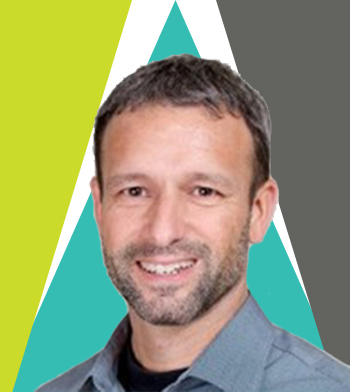
Martin Carignan, Difference GCS
BIOFOR
- 12:30 “Characterization of Biocrudes and Their Blends with Petroleum”, Rafal Gieleciak, Natural Resource Canada/CanmetENERGY
- 13:00 “Wrap-Up and Closing Remarks“, Marzouk Benali, Chair of BIOFOR 2022
14:00 – 14:30
Networking Break
14:30 – 16:00
Tissue Making - Papier tissu 101 (présentations orales en français, english slides)
Animatrice: Jessica Carette, Cascades
- 14:30 “Introduction au tissu”, Jessica Carette, Cascades
- 15:00 “Sélection de la pâte pour la fabrication du papier tissu”, Rafik Allem, FPInnovations
- 15:30 “Technologies et procédés pour la fabrication du papier tissu”, Daniel Ricard, FPInnovations
- 16:00 “Propriétés physiques”, Catherine Leon, Cascades
Environment
Session Chair: Corina Popovici, Resolute Forest Products
- 14:30 “Utilization Wood Ash from Kraft Pulp Mills to Remove Carbon Dioxide from Raw Natural Gas”, Kelsey Deutsch, NAIT (Northern Alberta Institute of Technology)
- 15:00 “Little Green Lies: from “ancient” forests to “zero” waste”, John Mullinder
- 15:30 “Real-time Biological Monitoring for Optimal Wastewater Treatment Outcomes in Pulp and Paper – Opportunities and Experiences”, Alexandra Webb, SENTRY
16:00 – 17:00
Networking
*Please note the schedule is set on Eastern Standard Time (EST)
